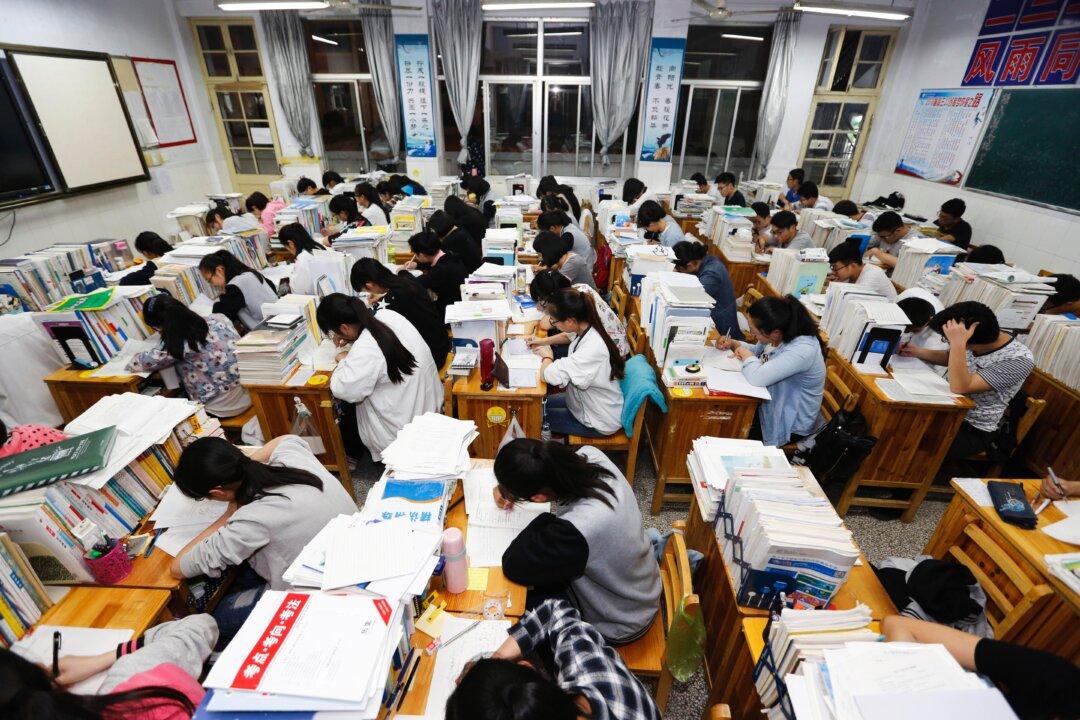A prestigious high school in Guangzhou, the capital city of China’s Guangdong Province, has aroused controversy by tracking students with “smart wristbands.”
Guangya High School, locally considered one of the top four public high schools in Guangzhou, issued a notice in early March announcing that it had purchased 3,500 of the wristbands for students to wear, to track information such as their location, classroom activity, heart rate, as well as walking and sleeping data.





